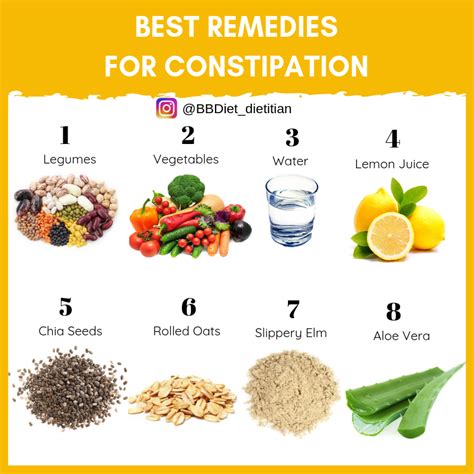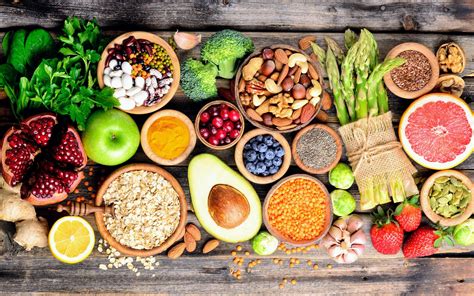Intro
Constipation is a common issue that affects millions of people worldwide, causing discomfort, pain, and disruption to daily life. It is characterized by infrequent bowel movements, hard or lumpy stools, and difficulty passing stools. Constipation can be caused by a variety of factors, including a low-fiber diet, lack of physical activity, certain medications, and underlying medical conditions. In this article, we will explore the importance of addressing constipation and discuss effective remedies to help alleviate its symptoms.
Constipation can have a significant impact on a person's quality of life, affecting not only their physical health but also their mental and emotional well-being. It can cause feelings of bloating, nausea, and fatigue, making it difficult to perform daily tasks and engage in social activities. Furthermore, chronic constipation can lead to more serious health complications, such as hemorrhoids, diverticulitis, and bowel obstruction. Therefore, it is essential to take constipation seriously and seek effective remedies to manage its symptoms.
The good news is that there are many effective remedies for constipation, ranging from dietary changes and lifestyle modifications to natural supplements and medical treatments. By understanding the causes of constipation and incorporating these remedies into daily life, individuals can alleviate its symptoms, improve their overall health, and enhance their quality of life. In the following sections, we will delve into the details of these remedies, exploring their benefits, mechanisms, and practical applications.
Understanding Constipation

To effectively manage constipation, it is crucial to understand its underlying causes and mechanisms. Constipation occurs when the muscles in the intestines contract and relax slowly, allowing stool to pass through the digestive system at a slower pace. This can be caused by a variety of factors, including a low-fiber diet, dehydration, physical inactivity, and certain medications. Additionally, underlying medical conditions, such as hypothyroidism, diabetes, and neurological disorders, can also contribute to constipation.
Causes of Constipation
Constipation can be caused by a combination of factors, including: * Low-fiber diet * Dehydration * Physical inactivity * Certain medications * Underlying medical conditions * Hormonal changes * AgingDietary Changes for Constipation Relief

Dietary changes are a crucial step in managing constipation. A high-fiber diet can help soften stool, increase bulk, and promote regular bowel movements. Foods rich in fiber include fruits, vegetables, whole grains, and legumes. Additionally, incorporating healthy fats, such as nuts and seeds, can help lubricate the digestive system and promote bowel regularity.
Some of the best foods for constipation relief include:
- Prunes
- Berries
- Leafy greens
- Whole grains
- Legumes
- Nuts and seeds
Hydration and Constipation
Adequate hydration is essential for preventing and relieving constipation. Water helps to soften stool, making it easier to pass, and promotes bowel regularity. Aim to drink at least eight glasses of water per day, and avoid sugary drinks that can exacerbate dehydration.Lifestyle Modifications for Constipation Relief

In addition to dietary changes, lifestyle modifications can also play a significant role in managing constipation. Regular physical activity can help stimulate bowel movements, improve digestion, and promote overall health. Aim for at least 30 minutes of moderate-intensity exercise per day, such as brisk walking, cycling, or swimming.
Other lifestyle modifications that can help alleviate constipation include:
- Establishing a regular bowel routine
- Avoiding straining during bowel movements
- Managing stress through relaxation techniques, such as meditation or deep breathing
- Getting enough sleep and maintaining a consistent sleep schedule
Exercise and Constipation
Exercise can help relieve constipation by: * Stimulating bowel movements * Improving digestion * Reducing stress and anxiety * Promoting overall health and well-beingNatural Supplements for Constipation Relief

Natural supplements can provide additional support for constipation relief. Psyllium husk, a soluble fiber supplement, can help soften stool, increase bulk, and promote regular bowel movements. Other natural supplements, such as probiotics, omega-3 fatty acids, and magnesium, can also help alleviate constipation symptoms.
Some of the best natural supplements for constipation relief include:
- Psyllium husk
- Probiotics
- Omega-3 fatty acids
- Magnesium
- Senna
Probiotics and Constipation
Probiotics can help relieve constipation by: * Promoting a healthy gut microbiome * Improving digestion * Reducing inflammation * Enhancing immune functionMedical Treatments for Constipation

In some cases, medical treatments may be necessary to manage constipation. Laxatives, such as senna or bisacodyl, can help stimulate bowel movements and relieve constipation symptoms. However, it is essential to use laxatives under the guidance of a healthcare professional, as they can have side effects and interact with other medications.
Other medical treatments for constipation include:
- Fiber supplements
- Osmotic laxatives
- Stimulant laxatives
- Prescription medications, such as linzess or lubiprostone
When to Seek Medical Attention
It is essential to seek medical attention if: * Constipation persists or worsens over time * Blood is present in the stool * Abdominal pain or discomfort occurs * Vomiting or nausea occur * Fever or chills occurWhat are the common causes of constipation?
+Constipation can be caused by a combination of factors, including a low-fiber diet, dehydration, physical inactivity, certain medications, and underlying medical conditions.
How can dietary changes help relieve constipation?
+Dietary changes, such as increasing fiber intake, incorporating healthy fats, and staying hydrated, can help soften stool, increase bulk, and promote regular bowel movements.
What are some natural supplements that can help relieve constipation?
+Natural supplements, such as psyllium husk, probiotics, omega-3 fatty acids, and magnesium, can help alleviate constipation symptoms by promoting a healthy gut microbiome, improving digestion, and reducing inflammation.
When should I seek medical attention for constipation?
+It is essential to seek medical attention if constipation persists or worsens over time, or if symptoms such as blood in the stool, abdominal pain, vomiting, or fever occur.
Can lifestyle modifications help relieve constipation?
+Yes, lifestyle modifications, such as regular physical activity, establishing a regular bowel routine, and managing stress, can help alleviate constipation symptoms and promote overall health and well-being.
In conclusion, constipation is a common issue that can have a significant impact on daily life. By understanding its causes and incorporating effective remedies, individuals can alleviate its symptoms, improve their overall health, and enhance their quality of life. Whether through dietary changes, lifestyle modifications, natural supplements, or medical treatments, there are many options available to manage constipation. We encourage readers to share their experiences, ask questions, and seek medical attention if symptoms persist or worsen over time. By working together, we can promote a healthier and happier community, free from the discomfort and disruption of constipation.
